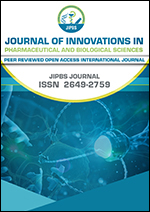Role and significance of p53 insights into breast cancer progression and therapeutic strategies: A review
Abstract
Breast cancer is the most widespread malignancy among women worldwide, with more than one million new cases analyzed every year. The TP53 (p53) gene is mutated in about 20 to 40% of breast cancer cases, contingent upon the size of the tumor and the stage of the disease. This is an early event in the advancement of breast tumors. Several mutations of the TP53 gene have been discovered and their role in the risk of breast cancer and their association with other genetic targets for cancer development has been discussed. The role of the TP53 mutation as a prognostic marker and the role of mutated p53 participation rate in the therapeutic response were discussed. All information available in the examination of TP53 mutations in breast cancer in humans confirms the significant role of TP53 in carcinogenesis of breast cancer. In addition, reviewed therapeutic targets and treatment options discussed may also contribute to the future treatment of breast cancer.
Keywords:
Breast cancer, p53, TP53, loss of heterozygosity, gene expression profiling, therapeutic targets of TP53Downloads
Published
How to Cite
Issue
Section
Copyright (c) 2020 Umadevi Bommu, Suneetha Yeguvapalli

This work is licensed under a Creative Commons Attribution-NonCommercial-ShareAlike 4.0 International License.




 Journal of Innovations in Pharmaceutical and Biological Sciences is licensed under a Creative Commons Attribution-NonCommercial-ShareAlike 4.0 International License. Based on a work at
Journal of Innovations in Pharmaceutical and Biological Sciences is licensed under a Creative Commons Attribution-NonCommercial-ShareAlike 4.0 International License. Based on a work at